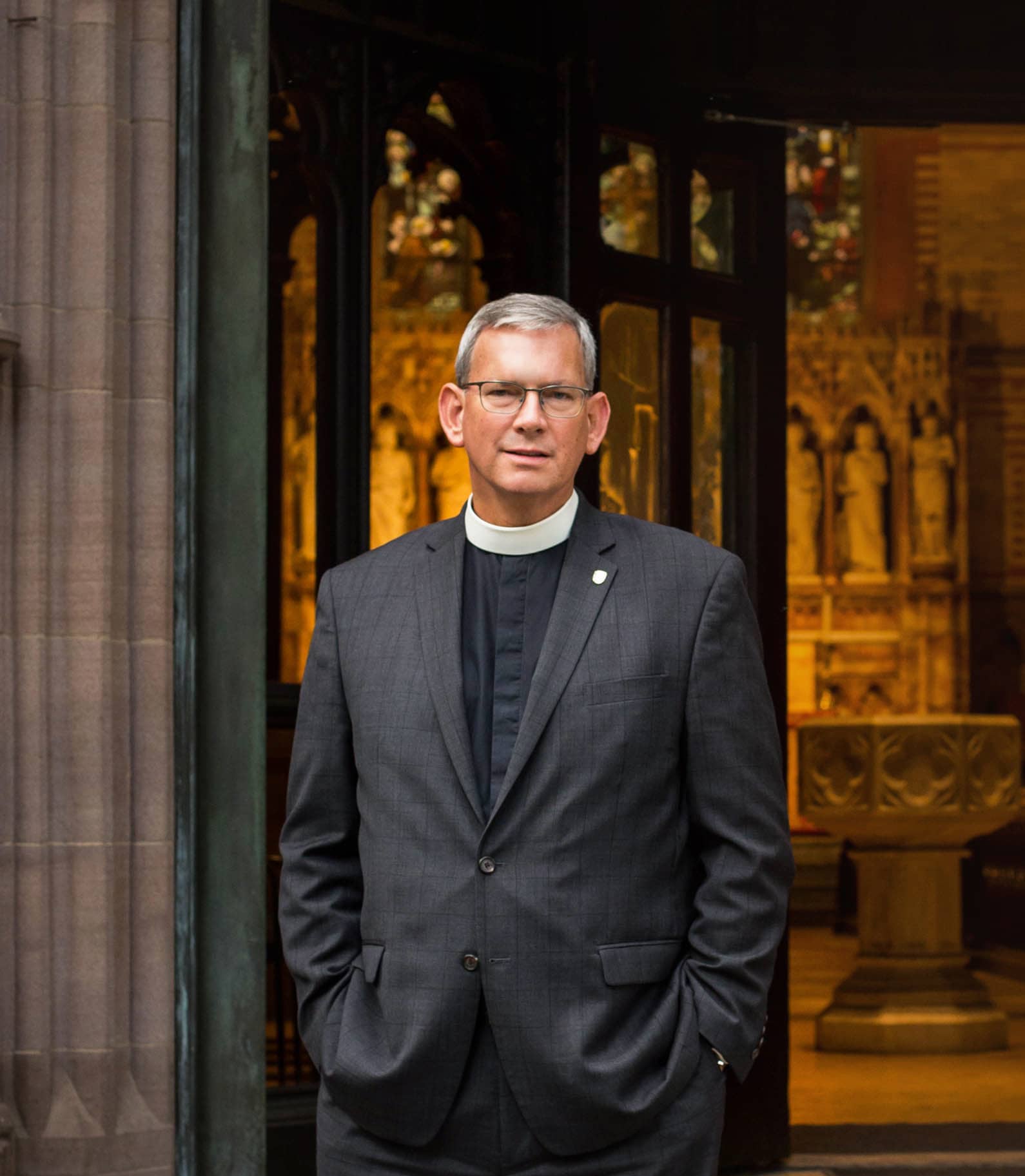
The Very Rev. Kurt H. Dunkle is a southerner who has served eight years as dean and president of New York’s General Theological Seminary, the oldest Episcopal seminary in the U.S. Last Sunday, soon after announcing he was stepping down, he addressed the congregation of Christ Church Greenwich on its Forum zoom. His talk focused on what has long steered him in his church life. “I fix things – I like to grow things.”
Launching his talk on how he had turned around a failing church in his Jacksonville, Florida homeland, Dunkle spelled out his strategies he called essential for growing an Episcopal parish church, in Covid or no Covid.
“Growth is a controversial topic in the Episcopal Church,” he began. “People say we shouldn’t talk about growth, we’re talking about inner spirituality, or the growth of people, and if you talk about numbers, it’s materializing people. I say, absolutely foolishness. We count people because people count…Growth is normative in the Christian church. Jesus comes. He is present. He does things and people follow Him.”
Dunkle’s first parish was Grace Episcopal Church in Orange Park, Florida, with a congregation numbering 34, previously at 1,200. “Everybody left the church to move down the street to a Grace Anglican church,” he said, after Grace Episcopal had ordained a gay bishop.
“So, you can’t do anything in life without a strategy,” said Dunkle whose first act was to “Welcome home,” his new parishioners and ask them two questions: “Did you leave with the folks that went to Grace Anglican?” He learned, “Nobody came back. So, where have you been going to church? One hundred percent said nowhere.”
Dunkle knew that from George Washington’s time forward, “The Episcopal Church has always attracted between two to three percent of the population…and that’s as good as it gets.”
What was necessary was his church to look and sound like an Episcopal church. “They can only experience God and God’s fullness, if they go to an Episcopal Church…They will not go to the Roman church…the Baptist church…the Pentecostal, or the nondenominational church, not because they’re flawed, but because they don’t understand the language, and the spirit is not moving within them.”
He listed the “simple things” that identify an Episcopal church: “The Book of Common Prayer, and it needs to be red…and a blue 1982 hymnal. If you have a Bible in the pew that’s a good thing – sometimes it’s the only time people touch them, and make sure it has the Apocrypha in it, because it explains Holy Scripture better than lots of things do.”
An authentic Episcopal Church, he told, “has a pipe organ… and there ought to be a cross somewhere visible…and candles…and we read out of scripture from the front of the church from a Bible.”
Thus did Dunkle grow his Grace Episcopal Church in six plus years from 34 to nearly 600. And part of that strategy was to have a “wide aisle. As a parish pastor, it was really important to understand there were people on all spectrums. My responsibility was to make sure that the spectrums weren’t too polar, because we’ve seen that in our country – we’ve seen what happens.” He told of that married lesbian couple, who would routinely share a pew with “this older guy that I was convinced was the local chapter president of the John Birch Society…and they liked each other.
“It’s all about Jesus,” he continued, “and when it stops being about Jesus, the churches begin to fail.”
“Church is all about relationships,” he added. “It’s about relationships with God, and its relationships with each other. The only two ways to make relationships are to fight or to play. And if you can’t find ample opportunities to play together, then you will default to fighting, or you’ll just ignore the person, and therefore you won’t have a relationship.” So, for that failed church Dunkle noted, “One of our strategies was to do something fun and social once a month, and fun and social in America usually means food and drink…just Christian fellowship.”
In conclusion, he returned to that “wide aisle” strategy. “In the Episcopal Church we need to be a wide middle aisle and welcoming to everyone. The issues are ever changing. In my lifetime, the issues have gone from poverty to racial justice to nuclear arms. And the church frequently takes a leading position on this. But be the middle aisle.” He recalled that final dinner upon leaving that now successful church, and being told, “We never figured out whether you were liberal or conservative.” Dunkle’s response: “I smiled and walked out the door,”



